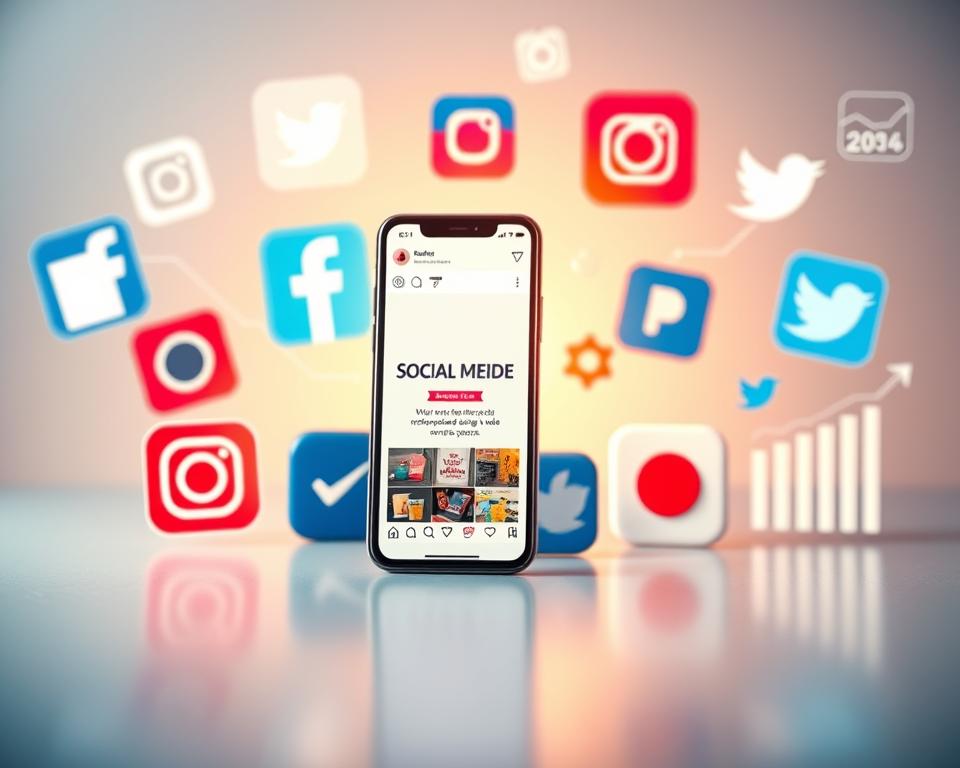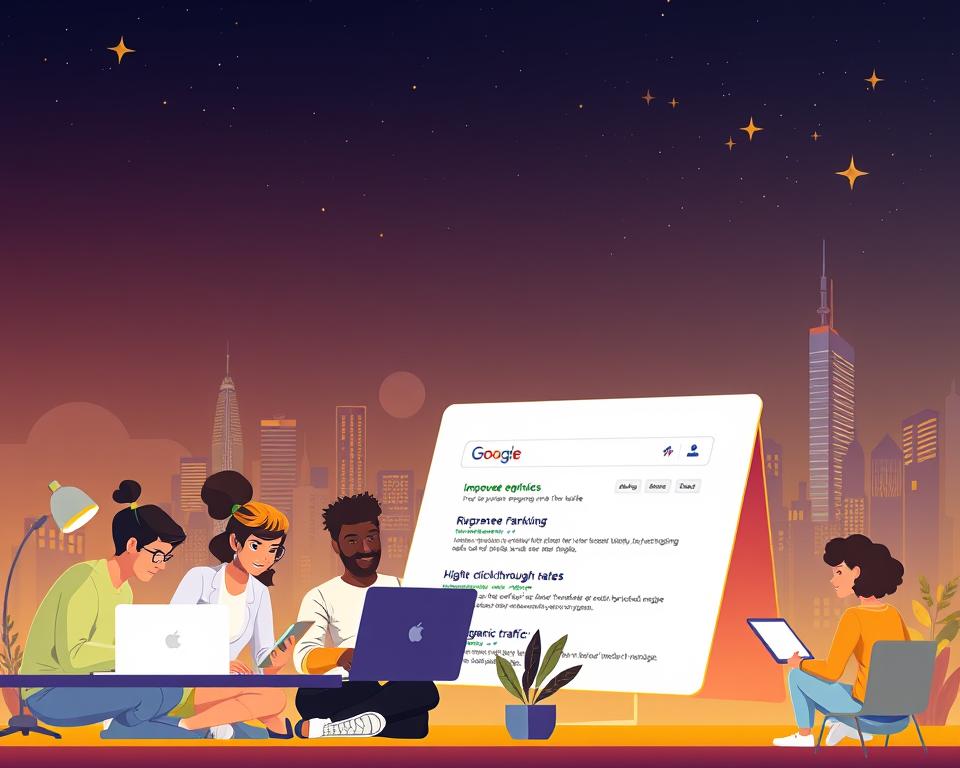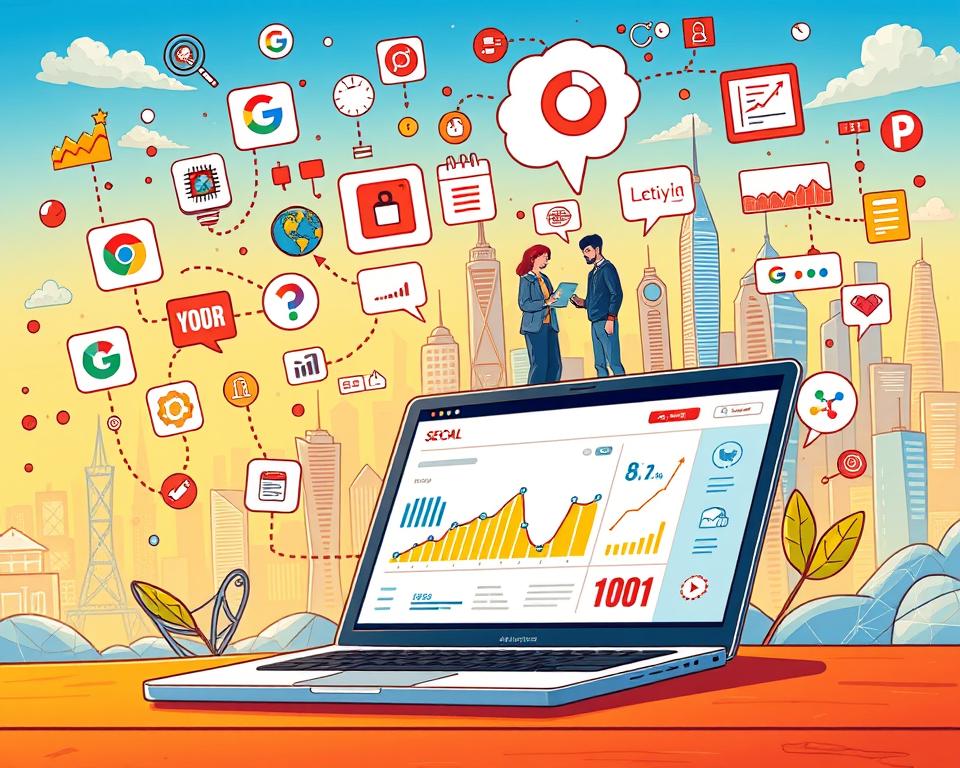1on1 Marketing: Access Personal Customer Connections.
Ever ponder why some brands connect deeply with their audience while others falter? The secret lies in 1on1 Marketing, a game-changing method that turns generic marketing into personalized experiences. It focuses on individual tastes, creating a bond that traditional marketing can’t match. It repositions the focus from one-size-fits-all messaging to tailored tactics that speak directly to each customer’s core.
By adopting 1on1 Marketing, businesses can build more meaningful connections. They can craft marketing plans that truly resonate with their audience. This section explores the core of 1on1 Marketing, showing how it enables brands to engage with customers on a more personal level, 1 on 1 official company website.
The Evolution of Marketing Strategies
Over time, the marketing landscape has experienced a major shift. Initially, marketers used one-size-fits-all strategies, relying on broad messaging for average consumer behavior. Today, the market demands a focus on customer engagement through tailored dialogues. This shift highlights the necessity to see customers as individuals rather than as a homogeneous mass.
With marketing’s evolution, it’s clear that generic tactics no longer cut it. Today’s methods aim on fostering real relationships rather than simply pushing products. Marketers now use data insights to inform their approach, moving towards personalized tactics that meet unique customer needs.
This evolution not only deepens customer connections but also boosts brand loyalty and retention. In today’s crowded market, brands offering personalized journeys stand apart. They create spaces for dialogue and engagement, making customers feel valued and understood.

| Strategy Type | Characteristics | Example |
|---|---|---|
| One-Size-Fits-All | Mass targeting, general appeal | Generic ad campaigns |
| Personalized Engagement | Individual focus, precision targeting | Segmented email flows |
Personalization’s Role in B2B
The B2B marketing landscape is rapidly changing, making personalization essential. Marketers aim to boost conversion rates through personalized 1:1 marketing. Research indicates that numerous view this as critical for retention. In a fast-paced environment, engaging audiences effectively is crucial.
Customization overcomes the hurdle of capturing attention. It ensures content resonates with each customer’s unique preferences. Focusing on personal experiences allows brands to stand out amid competition.
As touchpoints multiply, the demand for personalization grows. Companies embracing tailored tactics address needs and build lasting bonds. Such an approach offers a distinct advantage in today’s market.
Defining One-to-One Marketing
One-to-one Marketing centers on customizing experiences for each customer. It leverages data insights to design personalized engagement tactics. By concentrating on individual experiences, it creates robust customer bonds.
Imagine a cafe where the barista remembers your go-to order—this is one-to-one Marketing in action. This small act shows how paying attention to preferences can boost satisfaction. It transforms a routine purchase into a noteworthy experience, enhancing loyalty.
Implementing one-to-one Marketing requires a deep dive into customer data. They examine behaviors and preferences to craft messaging. This guarantees marketing efforts hit the mark with distinct tastes, yielding stronger connections and greater satisfaction.
As businesses seek personalized engagement, they realize customization is essential for lasting success. Those mastering bespoke experiences reap substantial rewards.
Advantages of Tailored Engagement
Tailored engagement offers multiple advantages for today’s brands. It dramatically increases satisfaction by delivering experiences that align with individual needs. Research reveals that 80% of consumers favor brands offering customized interactions. This underscores the power of tailored marketing.
Personalized loyalty programs boost retention. By targeting distinct pain points and tastes, companies foster a sense of being valued. This link promotes repeat business, increasing profits.
Personalized marketing also leads to higher conversion rates. Custom suggestions and targeted messaging steer customers from consideration to purchase. Emphasizing these benefits enhances brand image and primes businesses for competitive success.
| Benefit | Description | Impact |
|---|---|---|
| Happy Customers | Personalized experiences enhance overall customer happiness. | Higher chances of repeat purchases. |
| Rewards Tailored to You | Custom offers increase customer engagement. | Stronger retention and brand loyalty. |
| Conversion Rates | Targeted content drives customer actions effectively. | Growth in sales and revenue. |
Hurdles to Personalized Marketing
Implementing tailored marketing presents several challenges. One major challenge is the complexity of data collection. Robust data is essential for effective segmentation. Without it, marketers struggle to craft messages that truly resonate, leading to missed opportunities and inefficient campaigns.
Brands targeting specific audiences must navigate the fine line between personalized and generic communication. Large corporations often find it hard to maintain one-to-one interactions while heavily relying on automation. This risks eroding the personal connection customers value. – Marketing 1 on 11on1 official company website
Small businesses face unique barriers too. They may lack clear messaging, limiting their personalization efforts. Recognizing these challenges is essential for marketers aiming to improve their strategies and engage customers more effectively.
Tech That Powers One-to-One Marketing
Groundbreaking technologies in marketing are reshaping the realm of personalized customer engagement. CRM systems are pivotal for managing customer data. They organize data, essential for crafting bespoke experiences. A robust CRM system allows companies to grasp customer preferences and behaviors more deeply.
AI in marketing improves personalization by enabling more accurate targeting and automating tasks. Machine learning algorithms sift through vast datasets to uncover trends and consumer behaviors. This enables strategy refinement. Such automation cuts down on manual work and boosts the effectiveness of marketing campaigns.
Studies reveal that 72% of marketers focus on CRM systems for personalization. Marketing automation tools are used by 55% to streamline campaigns. These tools enable large-scale customization. This ensures marketing efforts connect with individual consumers, avoiding generic messages.
The integration of these technologies in marketing fosters a more dynamic approach to customer engagement. The fast-evolving scene drives adoption of cutting-edge tech. They boost efficiency and solidify audience bonds.
Personalization Best Practices
Successful personalization rests on core best practices. They guarantee resonance and improved engagement. Key components include:
- Audience segmentation is essential for targeting specific groups based on common traits. It enables precision messaging, driving engagement rates.
- Using refined communication improves the customer experience. Consistent, relevant communication across channels builds trust and encourages continued interaction.
- Adopting experimental approaches, like A/B testing, is critical. It identifies the most effective tactics by comparing messages and metrics.
Leveraging customer data is crucial to grasp behaviors and preferences. Marketers should regularly analyze this data to refine their strategies. By adhering to these best practices, brands can craft a personalized approach that resonates with their target audience.
Creative Ways to Personalize
Innovative tactics enhance personalization across all touchpoints. Brands now use personalized emails that match individual tastes, making messages more impactful. Analyzing purchase history allows spot-on product suggestions, driving sales.
Segment-specific videos are another smart tactic. It grabs attention and builds a strong emotional bond between the brand and its audience. Also, loyalty programs that evolve with user habits offer rewards for meaningful interactions, enriching the customer journey.
| Creative Tactic | Description | Benefit |
|---|---|---|
| Tailored Emails | Emails designed to individual preferences and behaviors. | Increases engagement and conversion rates. |
| Product Recommendations | Suggestions based on previous purchases and browsing history. | Enhances sales and customer satisfaction. |
| Segmented Videos | Video content designed for specific segments. | Strengthens brand connection and engagement. |
| Loyalty Programs | Rewards systems that adapt to individual behaviors. | Drives loyalty and repeat business. |
Brands can gain a lot by integrating unique offers across different platforms like social media, emails, and in-app notifications. Every touchpoint is an opportunity to showcase commitment to personalized engagement. This creates unforgettable experiences that help the brand stand out in a busy market.
Emerging Trends in Personalized Marketing
The world of 1on1 marketing is rapidly changing, driven by the latest marketing trends. Marketers will use AI to create personalized campaigns that meet individual needs. It enhances campaign outcomes and forges connections by delivering timely, relevant content.
Omnichannel experiences are another major trend. Customers now expect a smooth journey across different platforms, from social media to emails. Brands must ensure consistent messaging to meet these expectations. Understanding where and how customers interact helps create a unified experience, strengthening brand loyalty.
Adapting to these shifts, ethical data practices will become essential for maintaining trust with consumers. With growing concerns over data privacy, marketers must be transparent and responsible with data. Focusing on ethical data usage not only meets regulatory standards but also builds stronger customer relationships, leading to increased loyalty in the future of 1on1 marketing.


